Welcome to Fermentification
Embracing the Power of Fermentation
Fermentification is your go-to destination for everything fermented—kombucha, kimchi, sourdough, and beyond. We celebrate the ancient craft of fermentation, bringing you the best tips, recipes, and insights.
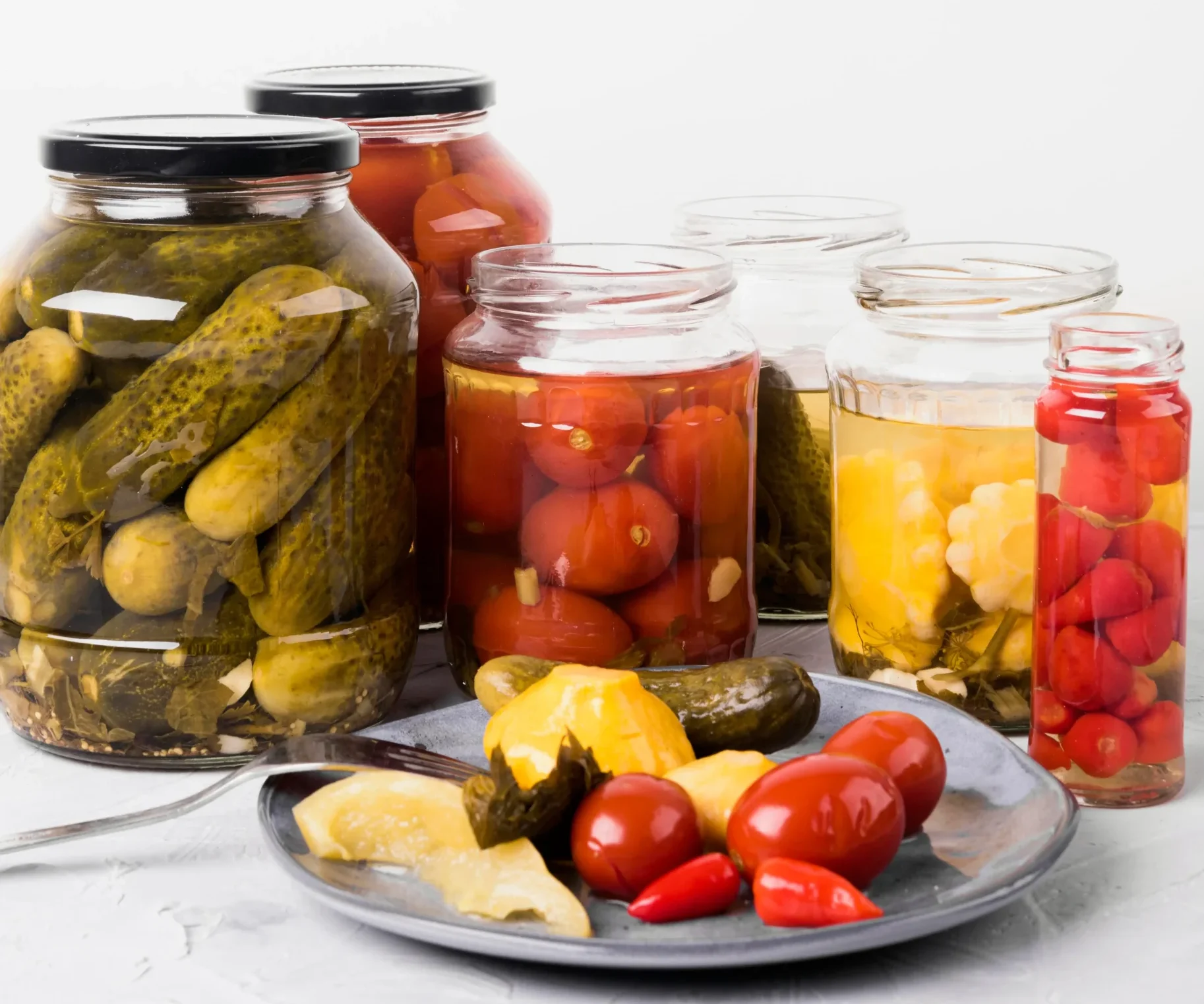
Fermentation and pickle
Fermentation & Pickle Process Fermentation is nature’s alchemy—a timeless dance between microbes and food that transforms the ordinary into the extraordinary. At the heart of this ancient craft lies the humble pickle, a symbol of preservation’s magic. Whether it’s the crisp tang of a lacto-fermented cucumber or the fiery kick of kimchi, pickles are more than just a condiment; they’re a living testament to the power of patience, bacteria, and salt. Here, we celebrate the art of turning simple ingredients into vibrant, probiotic-rich creations that nourish both body and soul. Welcome to a world where bubbles, brine, and bold flavors collide—welcome to the science, history, and deliciousness of fermented pickles 1. Fermented Pickles 2. Vinegar-Based “Quick Pickles” Key Differences: Fermented Pickles Vinegar Pickles Alive with probiotics No live cultures Tangy from lactic acid Sour from vinegar Require days/weeks to ferment Ready in hours/days Fizzier, complex flavor Crisp, sharp acidity Why They’re Linked:
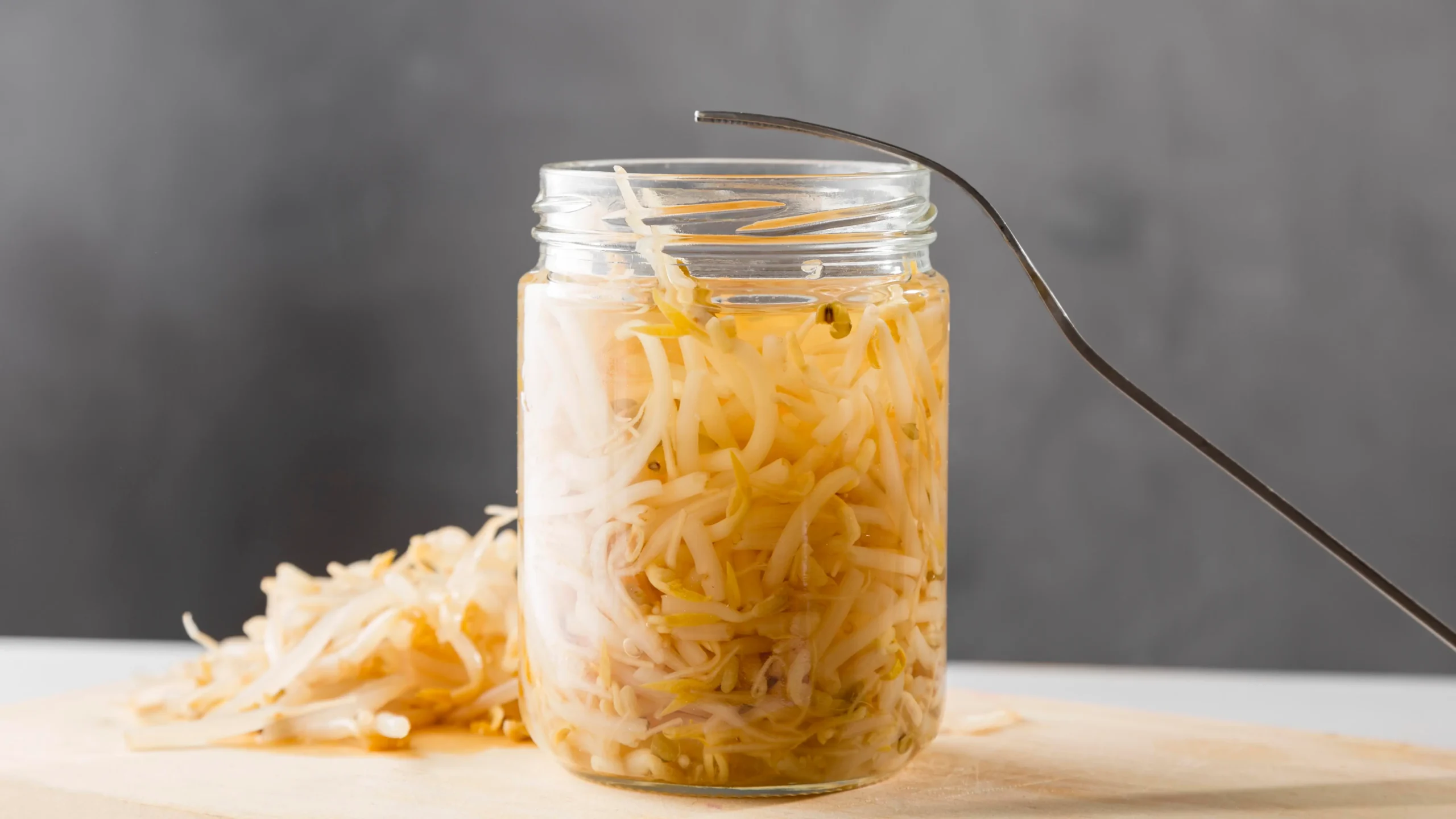
DIY sauerkraut
Sauerkraut Recipe Ingredients: Equipment: Simple 5-Step Sauerkraut Recipe
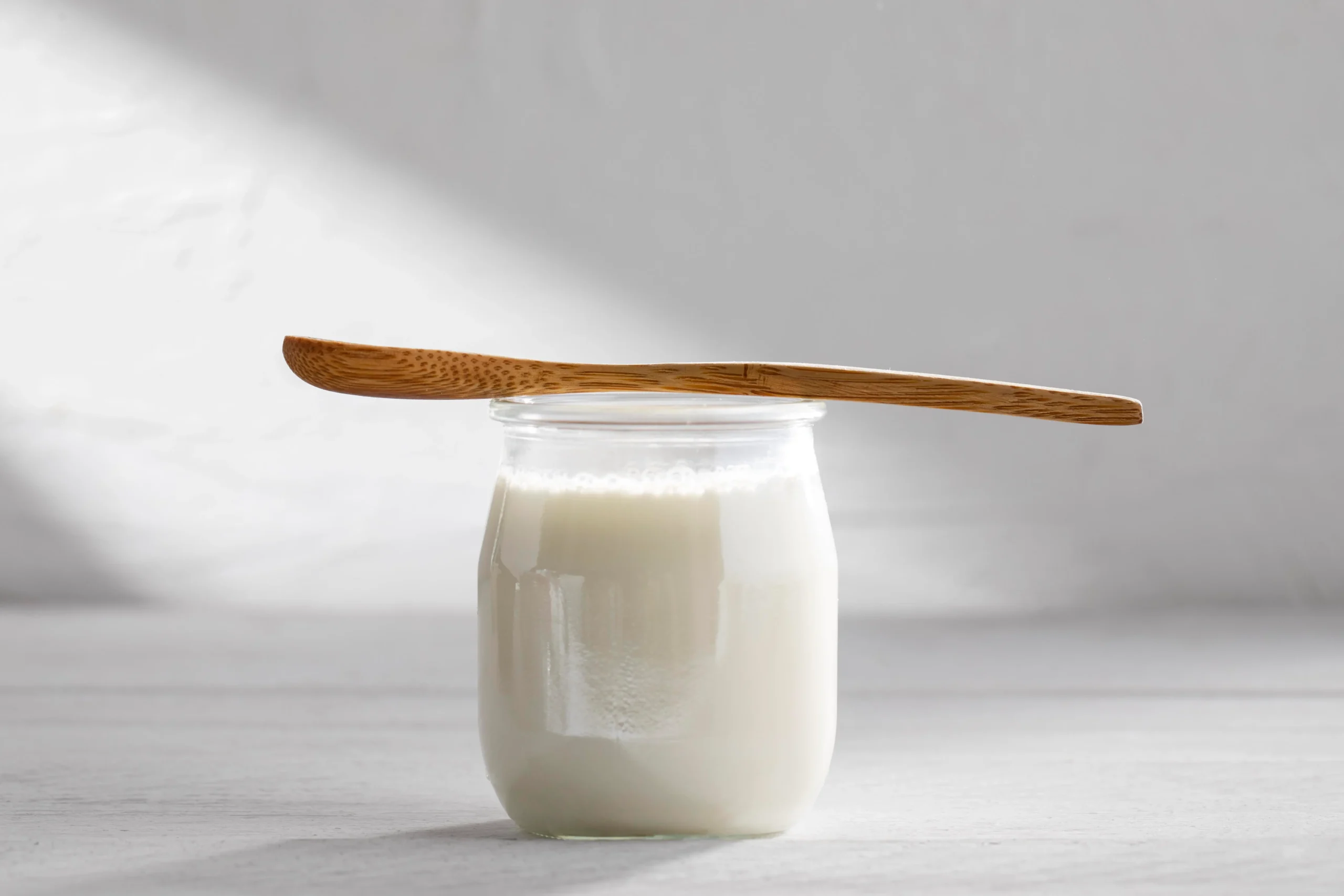
DIY Yogurt
HOMEMADE YOGURT Ingredients Equipment Steps to Make Homemade Yogurt 1. Heat the Milk 2. Cool the Milk 3. Add the Yogurt Starter 4. Incubate for Fermentation 5. Refrigerate Enjoy your homemade yogurt! It’s a healthy, delicious, and cost-effective alternative to store-bought yogurt
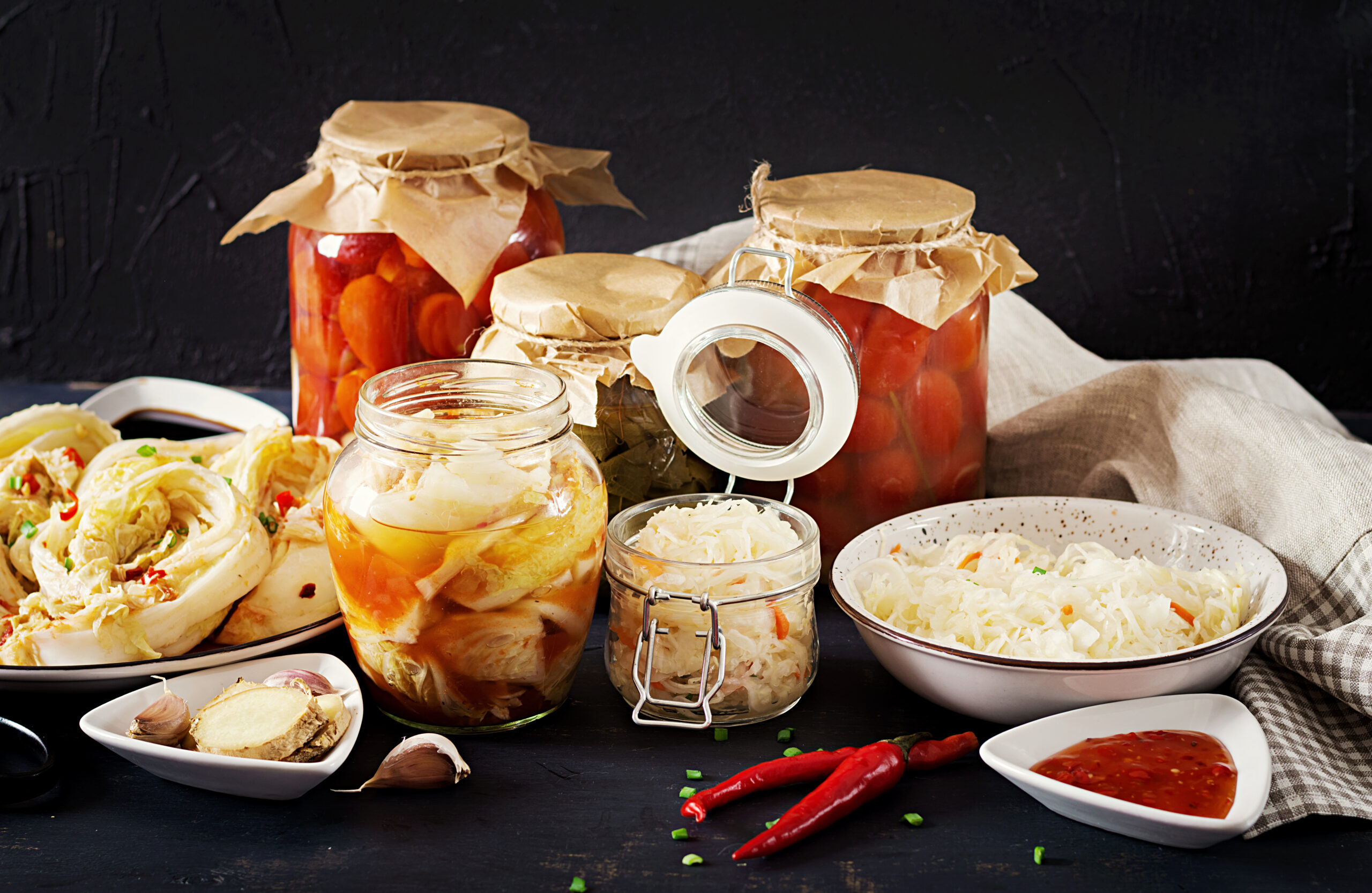
DIY Kombucha
What Is Kombucha & Why Is It So Popular? Kombucha is a fizzy, probiotic-rich tea that supports digestion and boosts energy. It’s made by fermenting sweet tea with a symbiotic culture of bacteria and yeast (SCOBY). The result? A delicious, tangy drink that’s good for your gut! How to Brew Kombucha at Home To make kombucha, you’ll need black or green tea, sugar, a healthy SCOBY, and patience. Simply brew your tea, add the SCOBY, and let it ferment for 7–14 days. Once ready, bottle it with fruit for a second fermentation to create natural carbonation. What Is Kombucha & Why Is It So Popular? Kombucha is a fizzy, probiotic-rich tea that supports What Is Kombucha & Why Is It So Popular? Kombucha is a fizzy, probiotic-rich tea that supports digestion and boosts energy. It’s made by fermenting sweet tea with a symbiotic culture of bacteria and yeast (SCOBY). The

A Step-by-Step Guide
What Is Kombucha & Why Is It So Popular? Kombucha is a fizzy, probiotic-rich tea that supports digestion and boosts energy. It’s made by fermenting sweet tea with a symbiotic culture of bacteria and yeast (SCOBY). The result? A delicious, tangy drink that’s good for your gut! How to Brew Kombucha at Home To make kombucha, you’ll need black or green tea, sugar, a healthy SCOBY, and patience. Simply brew your tea, add the SCOBY, and let it ferment for 7–14 days. Once ready, bottle it with fruit for a second fermentation to create natural carbonation. What Is Kombucha & Why Is It So Popular? Kombucha is a fizzy, probiotic-rich tea that supports digestion and boosts energy. It’s made by fermenting sweet tea with a symbiotic culture of bacteria and yeast (SCOBY). The result? A delicious, tangy drink that’s good for your gut! How to Brew Kombucha at Home To

DIY Kombucha: A Step-by-Step Guide
What Is Kombucha & Why Is It So Popular? Kombucha is a fizzy, probiotic-rich tea that supports digestion and boosts energy. It’s made by fermenting sweet tea with a symbiotic culture of bacteria and yeast (SCOBY). The result? A delicious, tangy drink that’s good for your gut! How to Brew Kombucha at Home To make kombucha, you’ll need black or green tea, sugar, a healthy SCOBY, and patience. Simply brew your tea, add the SCOBY, and let it ferment for 7–14 days. Once ready, bottle it with fruit for a second fermentation to create natural carbonation. What Is Kombucha & Why Is It So Popular? Kombucha is a fizzy, probiotic-rich tea that supports digestion and boosts energy. It’s made by fermenting sweet tea with a symbiotic culture of bacteria and yeast (SCOBY). The result? A delicious, tangy drink that’s good for your gut! How to Brew Kombucha at Home To

Common Fermentation Mistakes & How to Avoid Them
Fermentation is a fantastic way to preserve food, enhance flavors, and promote gut health, but it’s easy to make mistakes—especially when you’re just starting out. Here are some common fermentation mistakes and how to avoid them: 1. Not Using Enough Salt (or Using Too Much) 2. Using Chlorinated or Contaminated Water 3. Not Keeping Vegetables Submerged Under Brine 4. Using the Wrong Container 5. Fermenting at the Wrong Temperature 6. Not Waiting Long Enough (or Waiting Too Long) 7. Ignoring Signs of Spoilage 8. Not Cleaning Equipment Properly 9. Using Old or Overly Processed Ingredients 10. Opening Jars Too Often Bonus Tip: Trust the Process! Fermentation can look/smell strange (bubbles, cloudiness, tangy odors are normal). If unsure, refer to trusted sources or start with simple ferments like sauerkraut or pickles. By avoiding these mistakes, you’ll improve your fermentation success and enjoy delicious, probiotic-rich foods!

5 Surprising Health Benefits of Fermented Foods
A Boost for Your Gut Health Did you know that 70% of your immune system is in your gut? Fermented foods like yogurt, kefir, and miso introduce beneficial bacteria that help digestion, reduce bloating, and strengthen immunity. Fermented Foods Enhance Nutrient Absorption Fermentation breaks down anti-nutrients, making vitamins and minerals more bioavailable. For example, fermented cabbage in kimchi provides higher levels of vitamin C than its raw counterpart. A simple dietary change can supercharge your nutrition!

The Art of Fermentation: A Beginner’s Guide
Unlocking the Magic of Microbes Fermentation is an ancient technique that transforms simple ingredients into flavorful, nutrient-rich foods. From kimchi to kombucha, this process enhances taste and boosts gut health. But how does it work? The secret lies in microbes—tiny organisms that break down sugars and create probiotics, enzymes, and essential vitamins. Essential Tools for Fermenting at Home Starting your fermentation journey is easier than you think! Grab a few mason jars, quality salt, a fermentation weight, and an airlock system to keep unwanted bacteria out. Whether you’re making sauerkraut or sourdough, the right tools ensure a successful and safe ferment.
Latest Products

Mastering the Art of Wild Fermentation

From Kombucha to Sourdough

Reducing Food Waste Through Fermentation

